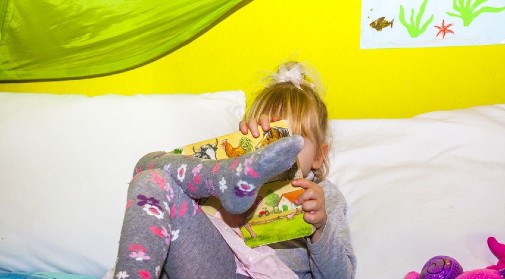Treatment plan helps keep young cancer patients at home during COVID crisis
Posted on 14 June 2020
 The programme is being trialled in Leeds, London, and Newcastle.
The programme is being trialled in Leeds, London, and Newcastle.
Dr Bob Phillips, from the University of York, is leading the push to roll out the programme in the UK.
The Low-risk Febrile Neutropenia Programme, which was developed by researchers in York and Australia, identifies when young cancer patients with a fever can be treated and supported at home.
Children undergoing cancer treatment face an increased risk of developing febrile neutropenia, a fever with low numbers of a white blood cells which are important in fighting infections. Febrile neutropenia may require hospital admission for antibiotics, but the international collaboration is working to manage suitable cases at home.
Development
Dr Phillips, from the University of York’s Centre for Reviews and Dissemination said: “It is early days, but the simple and robust system is already popular with families who have trialled it in Leeds, London, and Newcastle.
“Of the 32 children who have presented with febrile neutropenia at Leeds Teaching Hospital so far, nine have gone home with support and an antibiotic treatment plan within a day, compared to a usual minimum hospital stay of three days. Families have embraced the development.
“They absolutely want to get out of hospital quicker. It means that we don’t do unnecessary tests on kids and just annoy them, and they actually do better at home.
“It’s been wonderful to have the direct support of paediatric cancer researcher, Dr Haeusler and the Australian teams in implementing this program in the UK. Without her input we’d be struggling to make this work. The more we show it works across different hospitals in different countries, the more robust it is because it’s experiencing variation and being effective.”
Programme
The programme has been led by Dr Haeusler at Murdoch Children’s Research Institute (MCRI) and the Peter MacCallum Cancer Centre and is endorsed by the Children’s Cancer and Leukaemia Group (CCLG).
The system, called AUS-rule (Australia-UK – Switzerland), led to the programme being created and was formulated by Australia’s PICNICC (Predicting Infectious Complications of Neutropenic sepsis In Children with Cancer), the Swiss Paediatric Oncology Group (SPOG) and the University of York PICNICC project led by Dr Bob Phillips
Home management
The AUS-rule helps doctors decide which children with febrile neutropenia are suitable for home management using antibiotics and temperature monitoring. It considers platelet and white cell counts and chemotherapy intensity.
Dr Haeusler said: "Until now we couldn’t differentiate between the lower risk and the higher risk kids – we’ve treated them all the same. AUS-rule allows lower risk kids to be treated in the comfort of their own home.”
The study was funded by a National Health and Medical Research Council Grant
Explore more news

Sodium channels in breast cancer cells a promising target for future treatments, study reveals
Thursday 25 July 2024

Cooling the classroom: University of York researchers to investigate UK schools’ responses to hot weather
Wednesday 24 July 2024

Hunter-gatherers kept an 'orderly home' in the earliest known British dwelling, study shows
Tuesday 23 July 2024

Study uses Game of Thrones to advance understanding of face blindness
Tuesday 23 July 2024

York academic contributes to new report on men’s health which reveals disparities between most and least deprived areas in the UK
Wednesday 17 July 2024
Media enquiries
Our response to the coronavirus pandemic
We're working with partners in York and further afield as part of a global effort to fight the COVID-19 virus. From covid analysis in the labs to producing face shields for the frontline, we're using our knowledge and expertise to support the effort.
